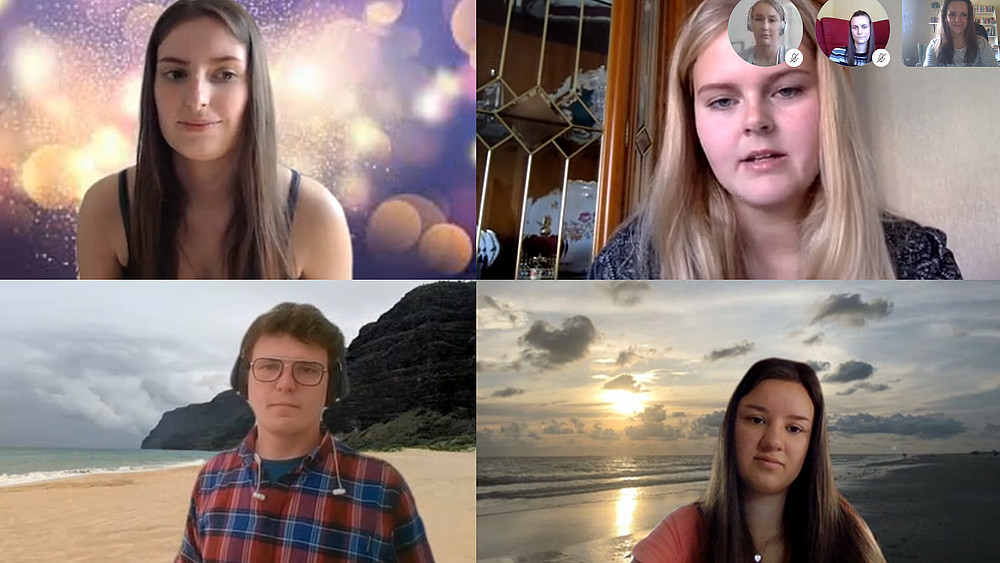Digital teaching in the "Leisure trends and forecasts" module

Markus is 38 years old, good-looking, married and has two children. He likes to wear suits, is smartly networked, environmentally aware and sporty. He is constantly pressed for time and tries to balance work, family and leisure. Mobility and optimal time management are important to Markus.
Markus is the typical user - a so-called persona - of the product prototype that Ann-Kathrin, Anne, Sophie, Lea and Laura are developing. They are conducting futurology and looking at the questions: "How will our society change? What will the markets of tomorrow look like? What products will be needed?" Their specific task is to develop a product prototype for medium and long-distance trains for business travelers. They have just had a pitch in which they presented what they know so far about their challenge and what needs their typical user - Markus - will have.
In the design thinking process, this step is called "defining perspectives". The process itself consists of seven steps. The students have already completed three of them. In the fifth step, the prototype must be available and presented to Sebastian Benad in another pitch. "I want you to sell me the train," he says. This product pitch then counts as a preliminary examination in the "Leisure trends and forecasts" module. You might think this builds up pressure, but the students seem enthusiastic, are fully immersed in the topic and you can sense that they can already see their prototype in front of them. Sebastian Benad says: "I have the feeling you're really up for it!"
But now from the beginning. At the start of the 2020 summer semester, Sebastian Benad is facing the same challenge as all lecturers: He has to teach his modules digitally from one day to the next. He is setting up an OPAL course for the "Leisure trends and forecasts" module. He communicates with students via the Skype channel set up by the Faculty of Managerial and Cultural Studies. To kick things off, he holds a kick-off event on the topic and methodology via Skype. "That worked really well. The whole course took part. We all went on mute and asked questions via chat," the students recall.
Following this, working groups were formed to develop product prototypes in the form of a design thinking workshop. The groups regularly present their interim results to Sebastian Benad via Skype. He then gives direct feedback and they discuss the next steps. His feedback today was good: "You seem very productive. I'm delighted with what you're delivering here."
Keyword productivity: you can find it here. Even purely digitally. "You can't say that we've become more productive online than before. We've always worked well as a group. Now we meet virtually, coordinate several times a week and work together on our topic," says the group. Their direct and open communication helps them to do this. Things are tackled and problems are addressed. The course organization, the professional input and the regular Skype meetings create a space in which the students can successfully complete their learning achievements in the module. Of course, the young women are struggling with current challenges such as fluctuating motivation and unstructured daily routines. But that doesn't stop them from pursuing their studies with joy, a thirst for knowledge and discipline.
Sebastian Benad has made a significant contribution to this with the design of his online module.
Design thinking is a process for promoting creative ideas. The approach aims to develop innovations that are geared towards users and their needs.
Study program: Bachelor Tourism Management
Module: Leisure trends and forecasts
Lecturer: Sebastian Benad, M.A.
Implementation of digital teaching:
Faculty: Managerial and Cultural Studies